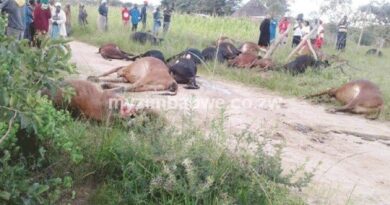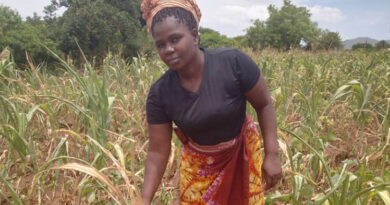COP15: Youths call for phase-out of fossil fuels and the protection of wetlands
By Elizabeth Kucherera
Tinashe Muzama, Program Officer for the Manica Youth Assembly, stood alongside fellow African youth leaders to call for urgent global action on two critical fronts, the phase-out of fossil fuels and the protection of wetlands.
Speaking at a youth side event of the Ramsar COP15, Muzama emphasized the vital interdependence between these goals, pointing out that the health of wetland ecosystems is inextricably linked to our commitment to end fossil fuel use.
He challenged attendees to harness the momentum of COP15 to advocate boldly for a Non-Proliferation Fossil Fuel Treaty, stressing that the youth voice is powerful and essential in driving systemic change. Muzama’s message was clear: our generation must not only protect wetlands as life-sustaining ecosystems but also address the root causes of their degradation—chief among them, the continued reliance on fossil fuels.
“Now is the time for youths to unite and drive this global movement for environmental change and justice,” said Muzama.
By uniting for fossil fuel phase-out and wetland protection, we honor our responsibility to future generations and the planet. Muzama’s call reminds us that the time for action is now, and that youth from Africa and across the globe are ready to lead the way toward a just, sustainable, and resilient future.
“Wetlands play a crucial role in climate regulation and biodiversity conversation, making their protection indispensable for a sustainable future,” Muzama said.
“Without addressing the production of fossil fuels,we risk blowing through our climate targets.”
Independent consevationist Nkululeko Dumani, another COP15 attendee, shared the same sentiments with Muzama as he stressed the need for grassroots action.
“The government must engage communities and local stakeholder to stop wetland destruction,” he said.
Melusi Ncube, another COP15 delegate, singled out mining as the top threat to wetlands.
“Mining is contaminating these sensitive ecosystems. We need to strike a balance between development and conservation.”
The Ramsar conversation signed in 1971 is an international treaty aimed at the conversation and wise use of wetlands through local, regional and global actions.




